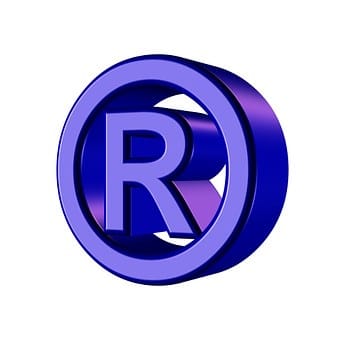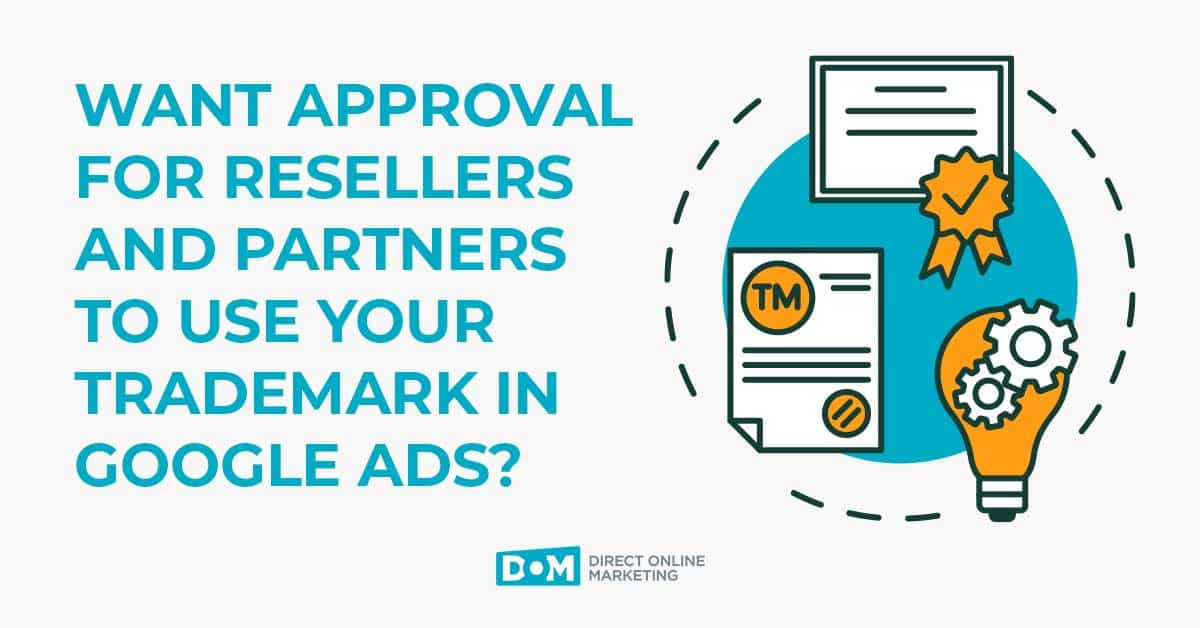
Recently I was able to get my hands on the Rosetta Stone Ltd v Google, Inc. ruling from the U.S. 4th Circuit Court of Appeals. If you can get through the legalese and have an interest in paid search, it’s fascinating – particularly because it could have huge implications on Google Ads advertisers.
The Found Video Recap of Rosetta Stone Ltd v Google
As you may have noticed, we’re adding video from the author to all our blog posts now that serve to give additional, related information or visually recap. We’re still playing around with everything, but we expect it to enhance your Found experience. So here’s me with my current favorite Google Store toy – the DOM Found team is up for any and all dodgeball challengers.
Note there’s much more to this post beneath the video, so keep scrolling!
Google Ads Trademark Policy (U.S., Search Network)
The case is all about trademark usage by non-trademark holders, which we’ve talked about before.* In a nutshell, Google’s current policy – and it wasn’t always this way – for the U.S. allows advertisers to advertise on any keyword they’d like regardless of trademark. What they cannot do in some instances is use that trademarked term in their ad copy, provided that a trademark complaint has been filed with and accepted by Ads legal counsel.
* Trademark usage also came up regarding natural search engine results in a case where we brought in attorney and friend-of-DOM Chris Gardill to provide expert legal opinion.
Here’s Google Ads’ official trademark policy. You’ll note they have different trademark standards for different geographic regions. In some places outside the United States, a trademark owner can actually prevent other advertisers from serving up ads on their trademark terms.
Also worth a read is their policy for resellers and informational sites. It’s probably worthy of its own post, but what I’ll note here is that just because you meet all these requirements doesn’t mean Google will approve your ad even after a manual review. We’d suggest requesting approval directly from the trademark owner if possible – Google will tell you whom to contact if you contact them. Once you get that approval, it should cover you for future ads as well so you don’t have to get held up every time you write a new ad (and it covers you for display ads, which are not covered by the reseller policy). Does Google do that as a CYA? Probably, but following this recommendation may be the best way to get your ads up as quickly as possible.
Rosetta Stone Ltd v Google, Inc. Summary
So, why exactly is this ruling from the Fourth Circuit important? Google had previously won summary judgment against Rosetta Stone from a U.S. District Court in Virginia. That’s pretty much what’s been happening for awhile now to the point where Google attorneys have won so often that often trademark owners have been just going after the advertisers infringing on their names, rather than trying to beat the G Machine.
For a better and more detailed history of lawsuits, check out the excellent Technology & Marketing Law Blog from Eric Goldman. Interestingly enough, Eric also served as a Limited Intervenor in this case. Those – I’m told – are folks that say they’re a party who has rights related to the suit. Specifically, in Eric’s case, he was doing it for freedom of press purposes as some of the court records were sealed. I don’t know what was sealed, but it’s not hard to imagine it would have to do with Google’s technology behind its paid search platform. If that’s the case and they would have to publicly release how, say, their auction actually works, that could be the most damaging part of the case to Google. Again, that’s just pure speculation.
This time around, the Court of Appeals disagreed with the District Court (and Google) on several points and sent it back to them to hear the case on those specific points. Let’s look at each of the points.
Just note that in sending back the case to be tried on these points the Court of Appeals is not saying that Google’s stance is wrong and that it has violated trademark rights. What it is saying is that the District Court was wrong to have awarded Google summary judgment, which means that the District Court found Rosetta Stone’s arguments to be without any merit worthy of actually being tried.
With that, here we go. Just be aware that I’m writing as a search engine marketer and not as an attorney, which I am not, although I did discuss parts of the ruling with attorneys to gain a clearer understanding.
Direct Infringement
Rosetta Stone made an appeal on two separate counts regarding direct infringement, both of which were vacated by the Court of Appeals:
Likelihood of Confusion
A response to this count took up many pages of the ruling and it’s all worth reading. The biggest part that jumped out to me was that Google itself had run internal studies in the past that indicated allowing advertisers to run ads on trademarked terms would be confusing to searchers.
The Court specifically notes that when Google Ads changed its policy in 2004 to allow advertisers to run on trademarked terms (prior to this time, they were not), Google did not allow trademarked terms to appear in ad text from non-trademark owners under any circumstances specifically for that reason. The policy for resellers and informational sites linked above is relatively new. The first instance of advertisers being allowed to use the trademarked term in ad text in any circumstances did not happen until five years later in 2009.
This section also had a note about the sophistication of consumers and the common searcher knowing the difference between paid ads and natural listings. Anecdotally – although from speaking with many, many people over the years – I don’t believe this is the case. Many people don’t recognize the difference at all and that’s not to mention how Google keeps making the box shading lighter and lighter so that it barely appears on some resolutions. Others do know there’s a difference but don’t understand exactly what the difference is.
Functionality
In short, the Court of Appeals felt that the “functionality doctrine” did not apply to this case (which the District Court did). Basically, the District Court believed that the trademarked terms made Google’s product (search results) more functional. The Court of Appeals said that was not the standard and that the question is whether the trademarked term is functional specifically in how Rosetta Stone used it.
Basically, Rosetta Stone’s products would function no differently if it had a completely, unrelated name. The most interesting part about this section of the ruling is that it references a case between Playboy and Netscape. I bring that up solely so I can add in this picture to increase page views.
Contributory Infringement
Another really interesting one in that it directly addresses Google’s involvement as a middleman. The Court explains contributory infringement by referencing a Supreme Court case stating:
if a manufacturer or distributor intentionally induces another to infringe on a trademark, or if it continues to supply its product to one whom it knows or has reason to know is engaging in trademark infringement, the manufacturer or distributor is contributorily responsible for any harm done as a result of the deceit.
So what Rosetta Stone is claiming in this regard is that Google had to know that infringers and counterfeiters would bid on its trademarked name. To support its claim, Rosetta Stone referenced nearly 200 examples over a 3-month period of fraudulent advertising on its name. Beyond just arguing that because they kept popping up Google was responsible for more due diligence (which would be an interesting challenge in and of itself), Rosetta Stone argued that the same companies continued to advertise fraudulently on their name by doing different Web sites.
Trademark Dilution
A major difference between trademark infringement and dilution is that dilution doesn’t deal with marketplace confusion or protecting consumers – just the company. The trademark dilution claim is going back to District Court for trial for a couple of reasons. An important one is that Rosetta Stone doesn’t have to show that Google was using the trademark to promote its own products. Google’s policies – the Court of Appeals argues – can cause trademark dilution that it could be liable for regardless of whether Google is using Rosetta Stone’s name to promote itself.
Something else discussed could matter for advertisers that have been around awhile: namely the question of when Rosetta Stone’s marks became “famous.” So, if you’ve had a “famous” trademark prior to 2004 (when Google changed its trademark policy to allow advertisers to bid on them), the outcome of the trial on appeal could be very important to you. There also remains the question of dates as Google’s other significant trademark policy change in 2009 where trademarks could be used in ad text in limited circumstances could be used as a dividing line for trademark fame.
Upheld Claims: Vicarious Infringement & Unjust Enrichment
Finally, in case you’re interested – and if you’ve made it this far through the post you must – the Court of Appeals upheld the District Court’s award of summary judgment regarding vicarious infringement and unjust enrichment. These will not be tried when the case goes back to be tried at the district level.
Vicarious infringement basically means that Google would have to be in cahoots directly with the advertisers, for which Rosetta Stone had no evidence and frankly, I can’t imagine happening. For unjust enrichment, Rosetta Stone makes an argument that Google knows it’s making money off of Rosetta Stone’s name unfairly. However, to argue this feature (which is Virginia law), they would have to show that Google “should reasonably have expected” to have to pay Rosetta Stone for such, which they did not claim and would have a hard time proving one would imagine.
Takeaways from Rosetta Stone Ltd v Google
Other than just general thoughts on trademark usage for advertisers, the biggest outcome at the moment is really left hanging in the air like a “Stay tuned for the next exciting episode” message at the end of a show. So check back in soon – same Bat Time (when it gets placed on the docket), Same Bat Channel (United States District Court for the Eastern District of Virginia). You know Google will be on pins and needles for the outcome.
NB – I’m biased, but I just want to add that it’s hard not to come away impressed with our court systems when reading through these cases. Cases are seriously considered by intelligent women and men trying their best to get the answers right. Just as important, there’s a checks and balances system where incorrect (whether perceived or real) rulings can be appealed through several layers providing there is some merit to the appeal.
For more on trademarks and other legality related to SEO and advertising in search engines, please check out any of the following:
- How to Protect Your Brand From Trademark Infringement In Google Ads
- You Can Use Competitor’s Brands in PPC, But Do You Want To?
- Catch A Competitor Bidding And Ranking For Your Brand? Here’s Your Options.
- How SEOs Can Protect Themselves Legally
To get more information on this topic, contact us today for a free consultation or learn more about our status as a Google Premier Partner before you reach out.


